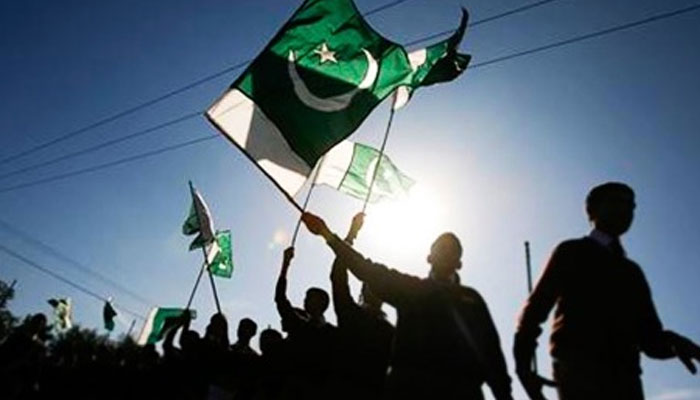
Pakistan 2025: Diplomatic Ascent and New Horizons of Economic Future
In 2025, Pakistan has witnessed a remarkable expansion of its diplomatic influence on the international stage, resulting in a transformation of its stature both regionally and globally. This shift is not only the outcome of carefully crafted diplomatic initiatives but is also driven by broader economic interests and visions of regional stability. The positive change in Pakistan’s foreign policy is closely linked with internal stability and economic reforms, propelling the country into a new era.
The foundation of Pakistan’s diplomatic successes rests on several pillars, military strength, robust ties with economic partners, and a principled approach to foreign policy. During this year, Pakistan secured international recognition for its role in the fight against terrorism, while also achieving significant milestones in trade agreements and regional peace initiatives. One of the major diplomatic achievements came when the United States designated the Balochistan Liberation Army (BLA) and the Majeed Brigade as Foreign Terrorist Organizations, thereby acknowledging Pakistan’s security concerns. In addition, Pakistan concluded trade agreements with the U.S. that included preferential tariff concessions, giving Pakistani exports a considerable boost. Under these agreements, Pakistan secured preferential tariff rates of 15–20 percent, while India faced 25 percent tariffs a striking example of successful economic diplomacy where Pakistan effectively advanced its interests on the global stage.
At the regional level, Pakistan also made significant strides in enhancing its influence. In Beijing, during a trilateral meeting with China and Afghanistan, Pakistan assumed the role of mediator, leading to consensus on the extension of the China-Pakistan Economic Corridor (CPEC) into Afghanistan. This move is pivotal not only in promoting regional economic cooperation but also in cementing Pakistan’s diplomatic stature. Similarly, Pakistan’s active engagement in the Shanghai Cooperation Organization (SCO) has positioned it as a crucial regional connector between South Asia, Central Asia, and the Middle East. Such achievements testify to the strength of Pakistan’s diplomacy, which has earned recognition for its role on both regional and global fronts.
Economically, Pakistan made important progress in 2025. The growth rate reached 2.7 percent, an improvement compared to the previous year, though still below the government’s initial target of 3.6 percent. Nonetheless, it signals a degree of stability in the economy. According to the World Bank, Pakistan’s economy is showing signs of stabilization, with declining inflation, improved fiscal conditions, and a narrowing trade deficit serving as encouraging indicators. Challenges, however, persist including rapid population growth, political volatility, and foreign exchange vulnerabilities. To address these issues, the government has focused on structural reforms such as improving the tax system, aligning the exchange rate with market realities, and reducing import tariffs. These measures are expected to stimulate investment and enhance exports.
Bilawal Bhutto Zardari’s diplomatic efforts have redefined Pakistan’s global image. At the Geneva Donor Conference in January 2023, he secured $9 billion in international aid by positioning Pakistan as a climate-vulnerable state. His endeavors have projected Pakistan as a peaceful and responsible nation, committed to mediation in regional disputes. Relations with the United States and other countries have improved, with Pakistan not only safeguarding its own interests but also consolidating its role in the international community. The U.S. military leadership has commended Pakistan’s peace-oriented initiatives, further strengthening its role in the region.
With regard to Pakistan’s economic future, the World Bank has suggested that effective implementation of reforms could accelerate growth. Economic growth is projected to reach 3.1 percent in 2026 and 3.4 percent in 2027. However, such progress hinges on the government’s ability to enforce structural reforms effectively. Problems such as poverty and unemployment persist, requiring sustained economic development for long-term relief. The rapid population increase and the impacts of climate change also pose serious challenges to the economy. Yet, Pakistan holds significant opportunities for growth, particularly in the fields of digital infrastructure and energy.
Pakistan’s diplomatic achievements and economic stability are deeply interlinked. Without economic progress, diplomatic influence remains limited; conversely, diplomatic success helps generate economic opportunities. Recognizing this, Pakistan has aligned its foreign policy with its economic interests. Projects such as CPEC have not only facilitated economic growth but also strengthened regional connectivity. Moving forward, Pakistan must continue to harmonize its economic and diplomatic initiatives to ensure that achievements in both spheres endure.
In 2025, Pakistan has attained noteworthy accomplishments on both diplomatic and economic fronts. Improved relations with the United States and other global actors, enhanced regional cooperation, and growing economic stability stand out as major milestones. Nevertheless, considerable challenges remain, requiring sustained strategy and reform to overcome. If Pakistan continues to effectively uphold its diplomatic and economic policies, the coming years may open new doors of prosperity and progress. This journey of success benefits not only the people of Pakistan but also serves as a positive contribution to the region and the wider international community.
(By Dr. Muhammad Tayyab Khan Singhanvi)






Comments are closed, but trackbacks and pingbacks are open.